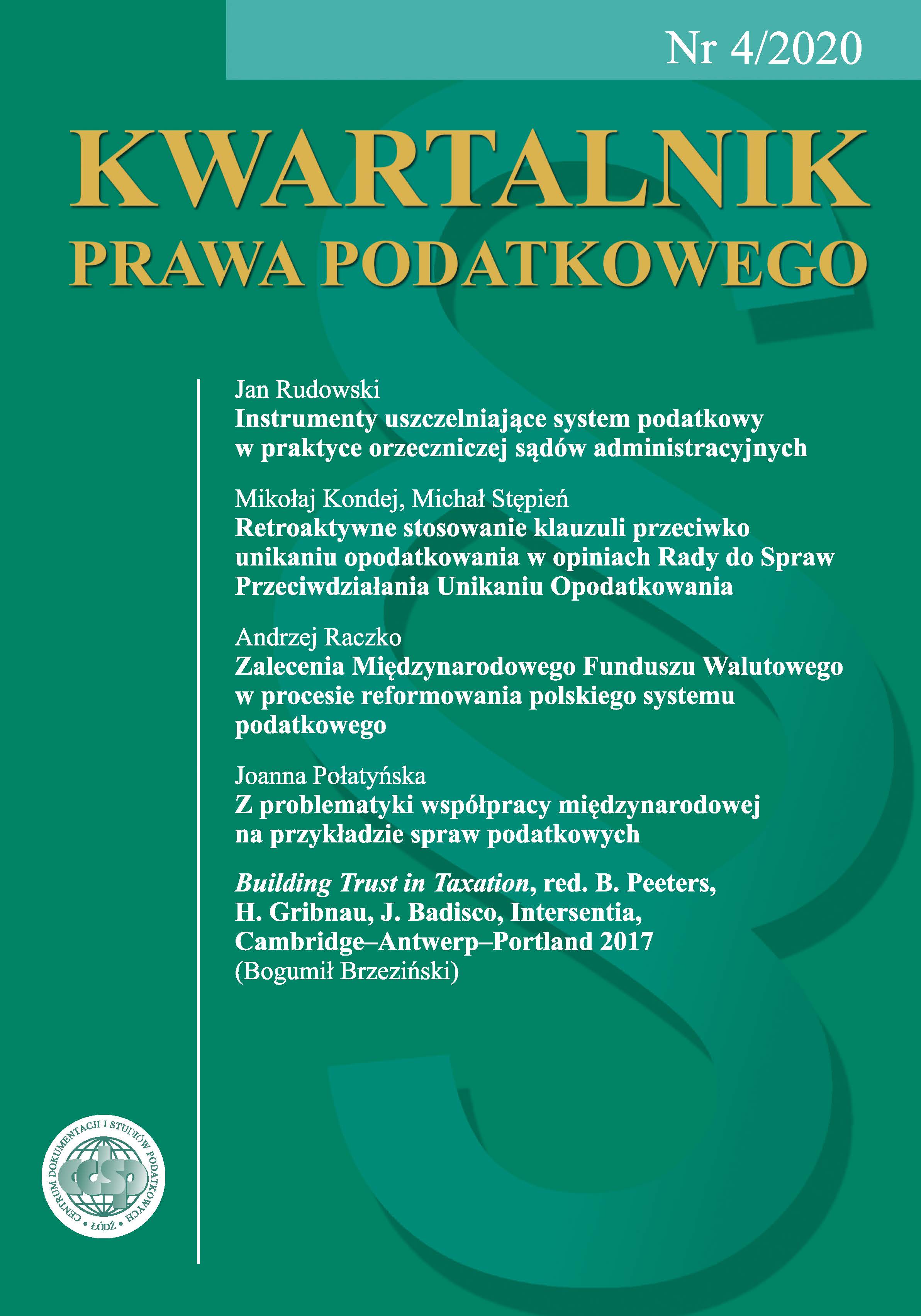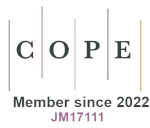Instruments sealing the tax system in the jurisprudence of administrative courts
DOI:
https://doi.org/10.18778/1509-877X.2020.04.01Keywords:
taxes, tax law, tax avoidance, tax evasion, general clause, bank account blocking, Mandatory Disclosure Rules, administrative courtAbstract
Actions taken by taxpayers – including the entrepreneurs – aimed at minimizing tax burdens are common and, in a sense, understandable. For these reasons, changes introduced to the tax law should take into better account the emerging risks of tax evasion. There is no doubt that tax evasion is contrary to the objectives of taxation; therefore it should and can be counteracted. The level of difficulty of the process of sealing the tax system in such a way that the constitutional requirements are met and bearing in mind compliance with EU law as well as the principles of legislative technique, have been proven by the recently introduced legislative changes in this area. This has also been confirmed by the issues related to the application by the administrative courts of the most important (also for the entire tax collection system) solutions introduced to the Tax Ordinance. Such solutions are the following: general clause against tax avoidance, the IT System (or: the Communication System) of the Clearing House (Polish abbrev. STIR) and Mandatory Disclosure Rules (MDR). As demonstrated by the analysis of the previous jurisprudence of administrative courts in the light of the use of selected instruments sealing tax collection in Poland, the conditions for their application should be examined ad casum in the context of specific factual circumstances. They should be examined not solely in terms of the rule-of-law-principle and the universality of taxation (Art. 83–84 of the Polish Constitution), but also in terms of the principle of trust (Art. 2 of the Polish Constitution as well as art. 121 § 1 of the Tax Ordinance). The latter points out that the tax proceedings in a democratic state of law shall be conducted regarding the principle of trust in taxpayers. It has been also emphasized in the case-law, that the principle of proportionality had to be particularly respected when introducing this kind of the legal solutions highly intrusive for taxpayers.
Downloads
References
Brzeziński B., Nykiel W., Zasady ogólne prawa podatkowego, [w:] Prawo podatkowe. Teoria. Instytucje. Funkcjonowanie, red. B. Brzeziński, W. Nykiel, Toruń 2009.
Google Scholar
Etel L., Nowa Ordynacja podatkowa – z prac Komisji Kodyfikacyjnej Ogólnego Prawa Podatkowego, Białystok 2017.
Google Scholar
Gajewski D., Wpływ wybranych instrumentów prawnopodatkowych na politykę optymalizacji opodatkowania holdingów międzynarodowych, Warszawa 2012.
Google Scholar
Litwińczuk H., Prawo podatkowe przedsiębiorców, Warszawa 2003.
Google Scholar
Mastalski R., Glosa do wyroku NSA z 1 grudnia 2011 r., I FSK 1565/11, „Orzecznictwo Sądów Polskich” 2012, nr 12, s. 119.
Google Scholar
Niezgódka-Medek M., Babiarz S. i in., Ordynacja podatkowa. Komentarz, wyd. 11, Warszawa 2019.
Google Scholar
Olesińska A., Klauzula ogólna przeciwko unikaniu opodatkowania, Toruń 2013.
Google Scholar
Podsiadło W., Przepisy dotyczące schematów podatkowych a możliwość wydania indywidualnej interpretacji przepisów prawa podatkowego, „Przegląd Podatkowy” 2020, nr 10.
Google Scholar
Słownik języka polskiego, oprac. L. Drabik, A. Kubiak-Sokół, E. Sobol, L. Wiśniakowska, Warszawa 1996.
Google Scholar
Szubiakowski M., Problemy proceduralne blokady rachunku bankowego w celu przeciwdziałania wyłudzeniom skarbowym, „Zeszyty Naukowe Sądownictwa Administracyjnego” 2018, nr 3(78).
Google Scholar
Downloads
Published
How to Cite
Issue
Section
License

This work is licensed under a Creative Commons Attribution-NonCommercial-NoDerivatives 4.0 International License.
PlumX metrics









